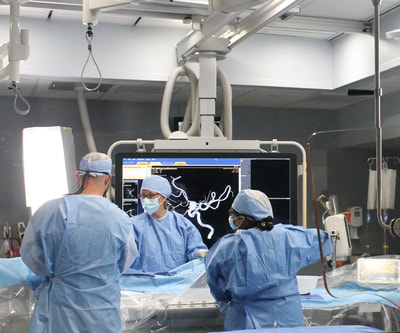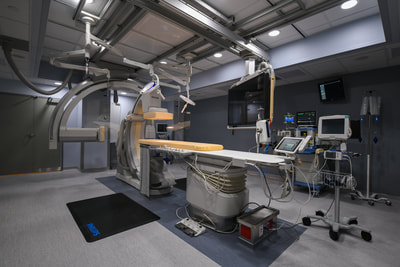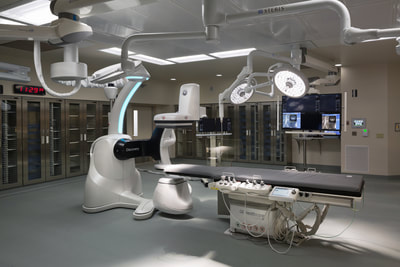Within the diagnostic radiology program, one resident per year can partake in the ACGME-accredited Early Specialization in Interventional Radiology pathway.
In the ESIR pathway, a heavy emphasis is placed on training in interventional procedures in the R3 and R4 years, with the anticipation the resident will apply to Interventional Radiology fellowship. Participating in the ESIR program reduces the 2-year Interventional Radiology Fellowship to 1 year.
The Interventional Radiology department is a busy service, with rapidly expanding and evolving cases. Residents will gain hands-on experience in performing and managing the following procedures:
Additionally, CT angiography studies are reviewed by the IR service.
In the ESIR pathway, a heavy emphasis is placed on training in interventional procedures in the R3 and R4 years, with the anticipation the resident will apply to Interventional Radiology fellowship. Participating in the ESIR program reduces the 2-year Interventional Radiology Fellowship to 1 year.
The Interventional Radiology department is a busy service, with rapidly expanding and evolving cases. Residents will gain hands-on experience in performing and managing the following procedures:
- Transjugular Intrahepatic Portosystemic Shunt (TIPS) & Transjugular Liver Biopsy
- Transarterial Y-90 Chemoembolization (TACE)
- Angiography (GI bleeds, Uterine artery embolization, stent-graft placement)
- Cryoablation
- Percutaneous Cholecystostomy
- Percutaneous Nephrostomy
- Percutaneous Gastrostomy
- CT & US guided biopsy
- Celiac Plexus Block
- IVC Filter Placement
- Peripherally Inserted Central Catheters (PICC)
- Tunneled Catheter
- Port placement
- Kyphoplasty
Additionally, CT angiography studies are reviewed by the IR service.





